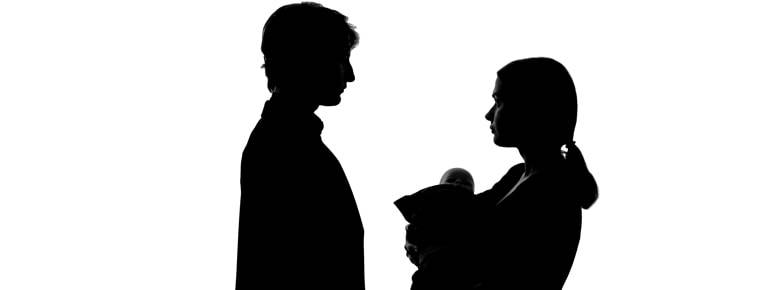
Out-of-step law ‘thwarts’ anti-trafficking efforts
A report by the Irish Human Rights and Equality Commission (IHREC) has expressed its concern at the haste with which the (now enacted) Health (Assisted Human Reproduction) Bill 2022 proceeded towards enactment.
IHREC expressed its concerns about the “highly unusual” approach taken by Irish legislators to the matter of paid-for global surrogacy.
The human-rights body has flagged exploitative surrogacy as an emerging form of human trafficking in its third evaluation of the implementation of the EU Anti-Trafficking Directive.
'Novel' form of trafficking
The recast EU directive introduces the exploitation involved in surrogacy as a “novel and emerging” form of human trafficking.
IHREC describes surrogacy as a “legal minefield full of complex human-rights and ethical concerns”.
The IHREC report, published last month, points out that the practice is not permitted in any other EU state.
In May, health minister Stephen Donnelly welcomed Dáil passage of what he stated was a “landmark” bill legalising surrogacy.
The IHREC report says that the national legal framework provided for by the Health (Assisted Human Reproduction) Bill requires further safeguards to ensure compliance with EU standards on preventing trafficking and exploitative surrogacy.
Recast text
The 23 April 2024 recast text of the EU directive expanded the trafficking definition by explicitly including forced marriage, illegal adoption, and surrogacy.
“We remain concerned that the insertion of Part 8 – international surrogacy – would extend the legislation to a practice not permitted by any other EU state, in an area marred with increasing human trafficking," the IHREC report states.
“In particular, the commission is concerned that this legislative approach may thwart other countries’ efforts to protect their own citizens from trafficking and reproductive exploitation,” it adds.
The issues of adoption and surrogacy are intrinsically linked, and the regulatory framework of the former impacts the latter, IHREC states.
They cannot be seen as separate processes and must both be examined to ensure there are sufficient protections to prevent exploitation and sale of children.
Forced pregnancy
The European Commission has observed in its fourth progress report on trafficking that cases of illegal adoption and surrogacy, and forced pregnancy, have now been detected.
The paid-for global surrogacy industry is expected to increase tenfold in size by 2032, to reach a turnover of $129 billion.
The IHREC report states that measures that protect the rights of surrogate mothers to be free from exploitation will have the correlating effect of safeguarding children against being born through exploitation.
The report states that despite “a clear understanding that Irish law is not capable of regulating what occurs in other countries … that is precisely what part 8 … intends and proposes to do”.
'Serious concerns'
This section of the act will pre-authorise surrogacy arrangements and provide for post-birth parental orders in Irish courts for global surrogacy arrangements.
IHREC states that it expressed “serious concerns” that sufficient regard was not paid to the State’s obligation to prevent and combat this form of human trafficking exploitation.
IHREC wrote twice to the health minister, in January and April this year, and has not yet received a response.
The human-rights body says that paid-for global surrogacy cannot be regulated in the same way as domestic arrangements.
This will lead to a double standard, IHREC states, with lower oversight of more risky global arrangements.
The commission adds that these concerns were compounded by the manner in which complex provisions were inserted into the Health (Assisted Human Reproduction) Bill (AHR Bill): through 256 amendments at Dáil Committee Stage.
The health minister admitted that part 8 is “essentially a new bill on international surrogacy” with the scale and complexity of a standalone bill, the IHREC report states.
'Clear double standard'
The IHREC report points to the “clear double standard” in the bill, whereby paid intermediaries are forbidden in domestic surrogacy arrangements but expressly permitted in global baby deals.
The report also questions how what the bill terms “approved jurisdictions” for baby deals will be agreed upon.
“The majority of countries prohibit, or are intending to prohibit, commercial or transnational surrogacy,” IHREC points out.
India, Thailand, Nepal and Cambodia all prohibit commercial surrogacy, and surrogacy to foreign nationals due to evidence of trafficking and exploitation. Georgia is expected to follow suit next year.
“It is hard to imagine which countries will actually meet requirements of the AHR Bill de jure, let alone de facto,” the report observes.
“It is arguable that the bill creates a regime that is simply unworkable extra-jurisdictionally.”
Dubious arrangements
IHREC flags the danger that these ‘light-touch’ regulations have the potential to increase the risk of exploitation of surrogates and the sale of children.
They also may inadvertently put Irish courts in the position of having given a ‘stamp of approval’ to dubious and exploitative arrangements in other countries, the report states.